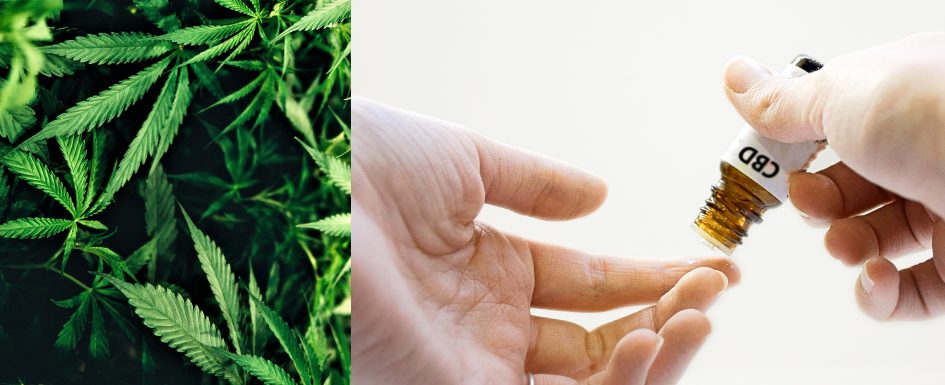
Whether politically motivated or not, CBD or Cannabidiol is at the center of a lot of the discussions pertaining to the relief of pain and aches. As such, many people who have achieved successes on the Living Wonderfully routine, have asked me to look into CBD, and all of the hype surrounding it.
Let’s take it one step at a time and get to the bottom of whether CBD is good or bad. Please keep in mind that in this article I will not be drilling deep as it pertains to benefits and/or risks of medical marijuana, as we will be concentrating on CBD, and what it’s all about.
So, where does CBD come from, and what does it have to do with marijuana plant?
- Cannabis Sativa plant, one of the oldest plants cultivated by humans,[i] also known as “weed”, “pot”, “grass”, “Mary Jane”, “dope”, or “marijuana”[ii] are one and the same. There is still a debate brewing about the strength of medical cannabis vs. the run of the mill marijuana.
- Cannabidiol or CBD is one of the many constituents or elements of the Cannabis Sativa.[iii] It is extracted from the flowers or buds of the plant.
What is the difference between cannabis and CBD?
- Cannabis contains THC or tetrahydrocannabinol. Despite some benefits of pot, a number of studies indicated that THC elicits “harmful psychiatric and addictive effects associated with its use”[iv], effects in the central nervous system,[v] altered brain development, among others.[vi]
- The CBD, on the other hand, may possibly contain protective properties against THC’s. [vii] Furthermore, “Cannabidiol is the major nonpsychoactive component of Cannabis Sativa”.[viii]
In short, the harmful substance, THC, the actual component of “weed” that gets you “high” when smoking run of the mill “pot”, is absent in CBD. In other words, CBD will not get you “stoned”.
Now that we know what CBD is and where it comes from, let’s delve into its medicinal uses.
As I went through myriad of studies on CBD, many showed potential benefit. I use the word potential because majority of the literature outlined that “further studies are needed”. Having said that, there is some evidence that CBD may help with the following conditions:
- Epilepsy – Reduction of convulsions in epileptic patients.[ix] In addition, there is convincing evidence that usage of CBD in conjunction with other treatments “improves seizure control in patients with specific epilepsy syndromes”.[x]
- Reduction in pain and sleep disturbances in MS or Multiple Sclerosis patients.[xi]
- Reduction of blood pressure. A study performed on nine healthy males showed benefit of decreasing blood pressure after a single dose of CBD.[xii]
- Anxiety Disorders – Although more studies are needed, there is evidence that CBD has “considerable potential as a treatment for multiple anxiety disorders”. [xiii]
- Alzheimer’s disease – Even though it’s poorly understood, CBD may have “neuroprotective properties” in addition to improving “behavioral disturbances”.[xiv]
- Parkinson’s disease – May help with anxiety, depression, and sleep, but not with movement.[xv]
- Anti-inflammatory – May reduce inflammation, including types of cancer that are triggered by chronic inflammation.[xvi]
Are there any side effects? Is CBD safer than conventional medicine?
Indeed, there are several side effects when using CBD, but the studies are not large enough to draw a definite conclusion, and more are needed. For example, how does CBD affect hormones? [xvii]
Here’s a summation of a 2017 review that should paint a relatively decent picture:
“The majority of studies were performed for treatment of epilepsy and psychotic disorders. Here, the most commonly reported side effects were tiredness, diarrhea, and changes of appetite/weight. In comparison with other drugs, used for the treatment of these medical conditions, CBD has a better side effect profile”.[xviii]
(Iffland & Grotenhermen, 2017) [xix]
Furthermore, there may be drug or other substances interactions with CBD, but the studies are either not large enough or unavailable in order to evaluate the significance of these interactions. [xx]
We do know, however, that Epileptic research is the most significant with the most convincing evidence out of all of the studies.
Self-medicating?
Some believe that they can take care of their anxiety and sleep by going to a private dispensary and purchasing a bottle of CBD oil or electronic cigarette Cannabidiol refill. Others believe that if you add it to coffee and drink it every day, it will make you feel invigorated. The problem with this scenario is that CBD is not regulated by the FDA,[xxi] [xxii]and you have no idea what you will be getting in this bottle or e-cigarette refill. Remember the snake-oil cola beverage with cocaine in it? J
Furthermore, if you happen to feel invigorated after using CBT for minor aches and pain, it is a temporary fix until the next “fix”, and not the Living Wonderfully lifestyle that I talk about in the book. Your body is perfectly capable of taking care of itself, provided that you get enough sleep, put in the proper nourishment into your system that is devoid of chemicals, and contains vitamins and minerals that your body desperately needs and thrives upon.
Thus, if you are suffering from Epilepsy, Parkinson’s or other diseases described above, check with a competent physician, and see if he or she may offer some alternative treatment.
Keep in mind that usage of CBD for public consumption is fairly new, so there aren’t too many controlled or necessary large clinical studies. Majority of studies are conducted on animals; therefore, some results may not be applicable to humans. Although, the information above came from reputable sources, it is not enough to draw a definite conclusion. I will revisit this subject in the near future and give you an update, as more information and far-reaching studies become available…
